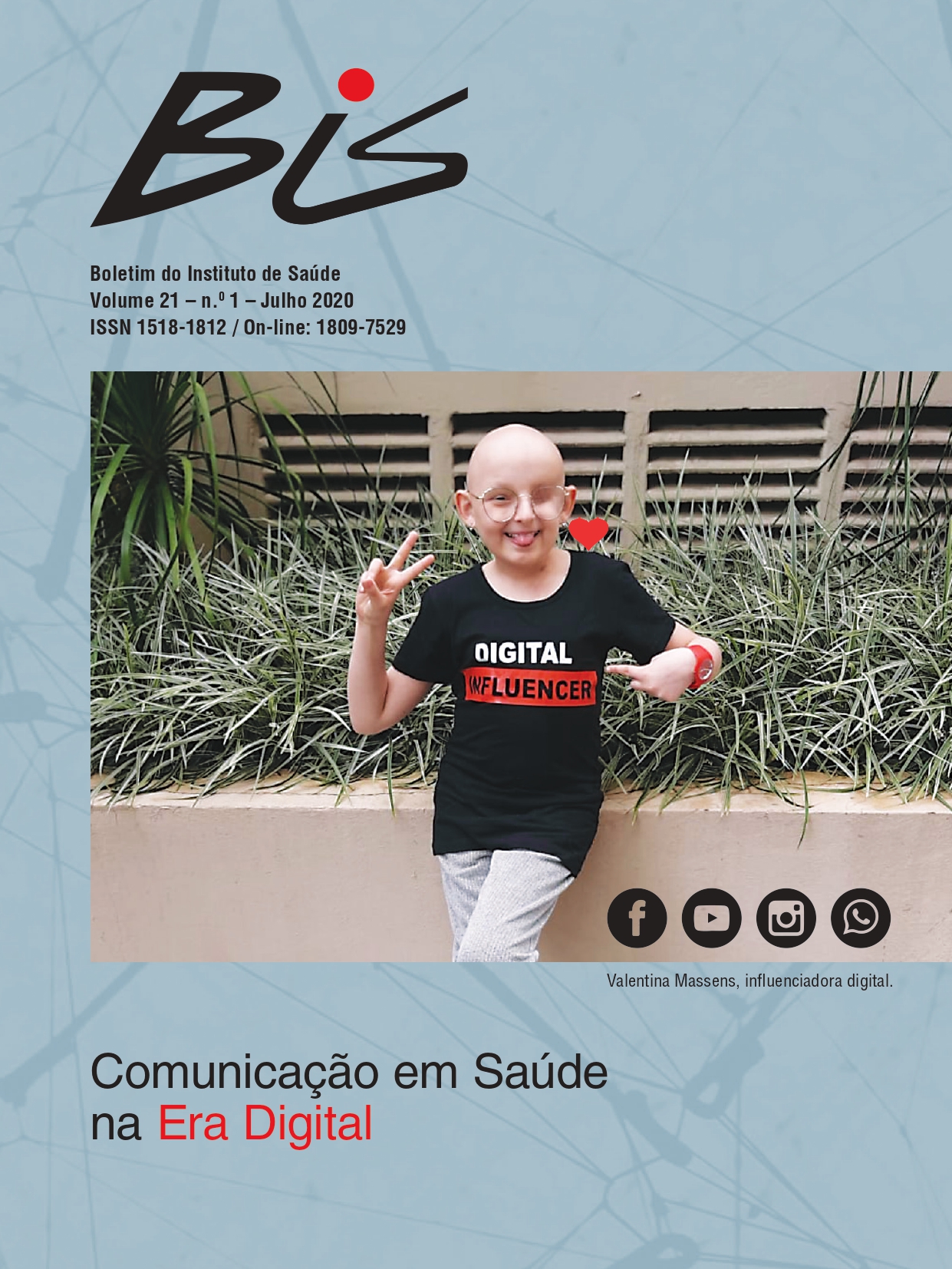Abstract
This work investigates the relationship between communication and health in contemporary times. With technological changes and epistemological advances, the definitions of both fields have changed and, therefore, their analysis becomes important to develop better
communication tools focused on health promotion. The aim of this investigation was to trace clues about this theme using sexuality as an object of discussion. To this end, as a proposal to apply the concepts, three media experiences that deal with sexuality in different contexts are explained: the Netflix series “Sex Education”, the Twitter profile of “Doutor Maravilha” and the existing possibilities to develop the dialogue in relationship apps. Thus, we seek to discuss the issues surrounding the discourse around these themes and cover all the complexity necessary for the discussion of health communication.
References
2. Batista LL. A Comunicação de riscos. In: Perez C, Barbosa IS, organizadores. Hiperpublicidade 2. ed. São Paulo: Thomson Learning, 2008.
3. Bostrom A. Future Risk Communication. Futures. 2003;(35):553-573.
4. Carrera F, Bernardazzi R, Xavier A, Medeiros HB, Oliveira L. Social evaluation at the finger point: self presentation and impression management on Tinder. Teknokultura. 2017;14(2): 339-350.
5. Di Giulio G, Figueiredo B, Ferreira L, Dos Anjos J. Comunicação e governança do risco: a experiência brasileira em áreas contaminadas por chumbo. Rev Ambiente & Sociedade.2010;2:283-297.
6. Di Giulio G, Serrão-Neumann, S, Viglio J, Ferreira L, Choy D. Propostas metodológicas em pesquisas sobre risco e adaptação: experiências no Brasil e na Austrália. Rev Ambiente & Sociedade. 2014;4: 35-54.
7. Fausto Neto A. Percepções acerca dos campos da Saúde e da Comunicação. In: Pitta AMR, organizador. Saúde & Comunicação: visibilidades e silêncios. São Paulo: Hucitec; 1995. p. 267-293.
8. Fessenden-Raden J, Fitchen JM, Heath JS. Providing Risk Information in Communities: Factors Influencing What Is Heard and Accepted. Science, Tech, & Hum Val. 1987; 12 (3,4): 94-101.
9. Freire P. Pedagogia do Oprimido. 17. ed. Rio de Janeiro: Paz e Terra; 1987.
10. Iglesia JLG, Coma JF. Teoria de la comunicación de riesgo. Barcelona: Editorial UOC; 2011.
11. Korda H, Itani Z. Harnessing social media for health promotion and behavior change. Health Promot Pract.2013;14(1):15-23.
12. Lemos A, Lévy P. O futuro da Internet: em direção a uma ciberdemocracia planetária. São Paulo: Paulus; 2010.
13. Louro GL. Pedagogias da sexualidade. 2. ed. Belo Horizonte: Autêntica; 2000. O corpo educado: pedagogias da sexualidade. p. 07-34
14. Lundgren R, McMakin A. Risk communication: a handbook for communicating environmental safety and health risks. Columbus: Ed. Battelle Press; 2004.
15. Sex Education [internet]. [acesso em 10 abr 2020]. Disponível em: http://netflix.com.br.
16. Queiroz AAFLN, Sousa AFL, Matos MCB, Araújo TME, Reis RK, Moura MEB. Conhecimento sobre HIV/aids e implicações no estabelecimento de parcerias entre usuários do Hornet. Rev Bras Enferm. 2018;71(4):2062-9.
17. Recuero R. Redes Sociais na Internet. Porto Alegre: Sulina; 2008.
18. Sjöberg L. Risk communication between experts and public: perceptions and intentions. Rev Organicom. 2007;(4)6: 67-85
19. Doutor Maravilha [internet]. [acesso em 10 abr 2020]. Twitter: @DoutorMaravilha. Disponível em: https://twitter.com/DoutorMaravilha.
20. Twitter [internet]. Twitter: Sobre; 2020. [acesso em 10 abr 2020]. Disponível em: https://about.twitter.com/pt.html.idem
21. Ventuneac A, John SA. Whitfield THF, Mustanski B, Parsons JT. Preferences for sexual health smartphone app features among gay and bisexual men. AIDS and Behavior. 2018;(22): 3384-3394.

This work is licensed under a Creative Commons Attribution 4.0 International License.
Copyright (c) 2020 Vinicius Alves Sarralheiro, Leandro Leonardo Batista
